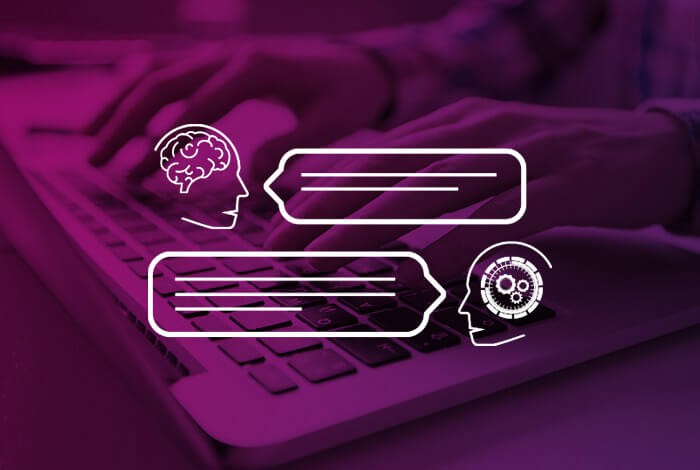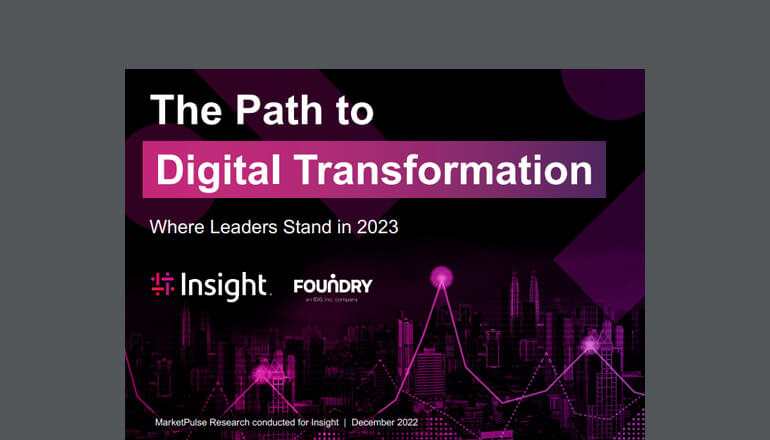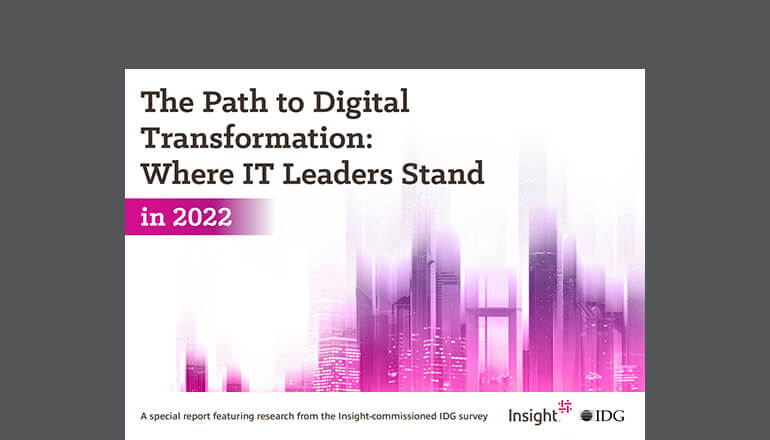Blog Five ways to transform your workplace with AI
By Insight Blog / 30 Jun 2023 / Topics: Artificial Intelligence (AI) Generative AI

Technology has made it easier for workers to access information, communicate and collaborate – from anywhere and at any time. But the volume of data, emails, messages and notifications people receive every day is placing them under intense pressure.
Microsoft’s latest Work Trend Index tells us that 68 per cent of people don’t have enough uninterrupted time to focus during their workday. Sixty-four per cent of people say they struggle with having the time and energy to do their job. These people are also 3.5x more likely to also struggle with innovation and strategic thinking.
This is where AI can help. AI has the potential to lessen workloads significantly due to its ability to handle vast volumes of data, automate repetitive tasks such as data entry, find information and even write emails. Along with delivering greater productivity, this can help free workers up to spend more time on analytical, creative or impactful work.
AI also holds the key to solving many of the challenges organisations are grappling with, from ongoing skills shortages to fraud and cybersecurity detection and supply chain sustainability.
We know from helping businesses across the Asia-Pacific region to leverage AI to achieve their goals that there are endless opportunities for AI. However, we’ve narrowed these down to five areas we believe have the most potential.
Each area presents businesses with enormous opportunities to become more agile, efficient and productive. That’s why we’ll be looking at each one in more depth over the next few months in our new series of blogs on transformational AI.
1. Increasing efficiency and decision-making
Shifting workplace dynamics are contributing to more of us feeling time-poor. AI can automate repetitive and time-consuming tasks, such as data entry and processing, freeing up employees’ time to focus on more complex or creative work. Automating routine processes also helps businesses increase operational efficiency, reduce the need for human intervention and potentially eliminate errors.
AI algorithms can also analyse vast amounts of data more quickly than human analysts, delivering the real-time data analysis and insights businesses need to make data-driven decisions faster and more accurately. By identifying trends, patterns and potential future outcomes, AI can help businesses anticipate market demand, forecast sales and enhance strategic planning.
Meanwhile, innovations like Microsoft 365 Copilot help workers tackle more creative tasks more effectively. This AI-powered tool works alongside you in Microsoft Word to efficiently create first drafts for you to edit and build on – saving hours in writing time. Copilot can also quickly create beautiful presentations in Microsoft PowerPoint based on your content and provide data analysis and visualisations in Microsoft Excel using the same information.
2. Enhancing customer experience
Poor customer experience can have a detrimental effect on business. AI-powered chatbots and virtual assistants use natural language processing to provide personalised and real-time round-the-clock support, improving the customer experience and increasing customer satisfaction. By resolving customers’ common issues, chatbots can also free up human agents to handle more complex enquiries.
3. Reducing costs
Minimising costs is critical for any successful business. AI can help reduce operational costs and improve the bottom line by identifying inefficiencies, streamlining processes and optimising workflows.
For example, predictive analytics helps businesses to optimise supply chain and inventory management, and production processes. This helps reduce waste, avoid overstocking and minimise associated costs. Analysing energy usage data can also help businesses to lower costs by optimising energy consumption.
4. Improving employee experience
Looking after workers is important for employee engagement, productivity and job satisfaction. It can also help businesses to build a healthy and supportive culture, drive creativity and innovation, and retain and attract top talent.
AI can be used to create personalised employee experiences by optimising individuals’ schedules, tracking performance and creating tailored training and development opportunities. It can also be used to create personalised wellness and meditation programs.
Empowering employees with the tools they need to work more effectively can reduce workloads and stress. For example, Microsoft 365 Copilot helps lighten the load by completing tasks like summarising long email threads or drafting replies to emails in Microsoft Outlook. It can also summarise discussion points in real time during Microsoft Teams meetings.
5. Predicting when maintenance is needed
Equipment downtime not only affects production capacity – it can have an impact on operational efficiency, profitability, customer satisfaction and brand reputation.
AI can analyse vast amounts of data generated by machines and equipment to predict when maintenance is needed, allowing businesses to plan and schedule repairs before any issues surface.

Roland Leggat
Modern Workplace Specialist, Insight Enterprises
With more than 20 years of industry experience, Roland focuses on the Microsoft stack of technologies to help identify customer business and technology challenges and realise the business value of Modern Workplace solutions.

Have you been briefed?
Discover reports, stories and industry trends to help you innovate for the future.





